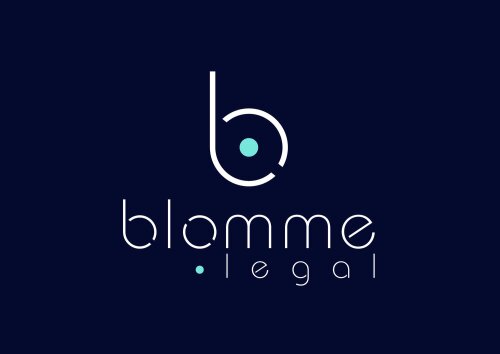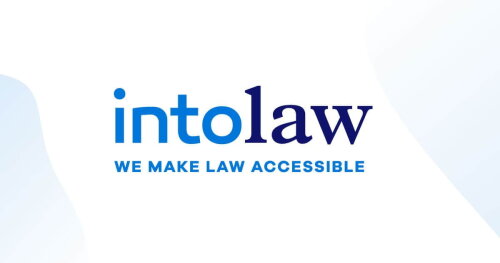Best Housing, Construction & Development Lawyers in Ghent
Share your needs with us, get contacted by law firms.
Free. Takes 2 min.
Free Guide to Hiring a Real Estate Lawyer
List of the best lawyers in Ghent, Belgium
About Housing, Construction & Development Law in Ghent, Belgium
Housing, Construction & Development law in Ghent, Belgium covers a wide range of legal matters relating to property, building projects, urban planning, and landlord-tenant relations. This legal area involves both public and private law, including municipal regulations specific to Ghent, regional Flemish rules, and national Belgian laws. The city of Ghent, known for its rich historical fabric and urban growth, faces unique challenges balancing heritage preservation with new construction and housing demands. Whether you are a homeowner, developer, tenant, or property investor, understanding the legal landscape is key to safeguarding your interests and ensuring compliance with all applicable rules and regulations.
Why You May Need a Lawyer
Engaging a lawyer with expertise in Housing, Construction & Development in Ghent can be essential in many scenarios. Some common reasons individuals and organizations seek legal help include:
- Buying or selling property and navigating complex purchase agreements
- Drafting and negotiating construction contracts
- Resolving disputes with contractors, architects, or neighbors
- Appealing decisions related to urban planning or building permits
- Managing landlord-tenant disputes, such as eviction or unpaid rent
- Understanding and complying with heritage preservation requirements
- Addressing zoning issues or land use conflicts
- Ensuring compliance with safety, environmental, and energy regulations
Lawyers can also provide invaluable guidance when dealing with public authorities, preparing legal documentation, or representing your interests in court or administrative hearings.
Local Laws Overview
The legal framework governing Housing, Construction & Development in Ghent is shaped by several levels of rules:
- Urban Planning and Zoning: The City of Ghent has detailed zoning plans (bestemmingsplannen) that determine what can be built and where. These plans are aligned with broader Flemish Regional urban development guidelines.
- Building Permits: Most construction, renovation, or demolition activities require a building permit (omgevingsvergunning), issued by the municipality and subject to regional and city-wide rules.
- Environmental and Energy Standards: New developments must comply with strict energy performance regulations (EPB), disposal of waste rules, and sometimes additional sustainability standards.
- Heritage Protection: Ghent contains many protected monuments and historic zones, where special permits and restoration standards apply.
- Rental Law: Tenant and landlord rights are governed by federal and Flemish legislation, including rules specific to social housing, rent payments, deposit schemes, and termination procedures.
- Dispute Resolution: Many disputes, such as construction defects or late deliveries, may be resolved by negotiation or through specialized tribunals before court proceedings.
Staying up to date with these laws is crucial because rules may change, and non-compliance can lead to fines, delays, or legal action.
Frequently Asked Questions
What is a building permit, and when do I need one in Ghent?
A building permit (omgevingsvergunning) is an official authorization from the local authorities to build, renovate, demolish, or make significant changes to a property. In Ghent, most construction activities require this permit, except for minor adjustments like painting or small repairs. Always check with the municipality before starting any work.
How can I check if a property is located in a protected heritage area?
You can inquire with Ghent's city heritage department or consult public registers to determine if your property is located in a protected area or is a classified monument. Owning such property means stricter rules will apply to any modifications or development.
What are my rights as a tenant regarding deposit and rent increases?
Deposits are usually limited to two or three months' rent and must be protected in a blocked account. Rent increases are regulated by law and typically can only happen once a year, with certain limitations based on the rental contract and housing index.
Can a landlord evict a tenant easily in Ghent?
No, eviction is strictly regulated. The landlord must follow specific legal procedures, including giving proper notice and, in some cases, obtaining a court order. Illegal eviction can result in penalties for the landlord.
What should I do if I have a dispute with my contractor or developer?
First, attempt to resolve the issue amicably. If that fails, you may seek mediation or file a complaint with relevant bodies. Consulting a lawyer for formal action or court procedures is often advisable, especially for significant contractual breaches or financial losses.
How long does it take to get a building permit in Ghent?
Processing times vary depending on the complexity of the project but generally take between 60 and 105 days for standard applications. Projects in heritage or environmentally sensitive zones may take longer due to additional review procedures.
What can I do if my building permit application is denied?
You can file an administrative appeal with the city or regional authorities. Having a lawyer to guide you through the appeals process can increase your chances of success.
Are there grants or subsidies for renovation and energy efficiency in Ghent?
Yes, both the City of Ghent and the Flemish Region offer various subsidies for energy-saving improvements, renovations, and heritage conservation. Eligibility criteria and application processes apply.
Is it possible to convert a single-family home into multiple apartments?
This depends on city zoning regulations and urban planning policies. You will need to apply for the appropriate permits, and the property must meet safety, health, and suitability standards.
Who is responsible for property boundary disputes in Ghent?
Boundary disputes are typically resolved through civil law procedures. Engaging a land surveyor and a lawyer is recommended to obtain an expert opinion and legal resolution.
Additional Resources
- The City of Ghent Building and Urban Planning Department - Provides information on permits, urban planning, and heritage.
- Flemish Region Omgevingsloket - The online portal for environmental and building permit applications.
- Vlaamse Woninghuurcommissie (Flemish Rental Commission) - Assists with rental law disputes and mediation.
- Flemish Energy Agency - Offers advice and details on available energy renovation subsidies.
- Local Bar Association (Orde van Vlaamse Balies) - For finding registered legal professionals in Ghent.
- Consumer Protection Organizations - For independent advice or complaints about construction or rental issues.
Next Steps
If you require legal assistance in Housing, Construction & Development in Ghent, Belgium, it is advisable to take the following steps:
- Gather all relevant documents, such as contracts, permits, correspondence, or notices.
- Identify the main issues or areas of concern, including potential deadlines.
- Contact a specialized lawyer with experience in property, construction, or housing law in Ghent.
- Consider accessing public services or mediation bodies if available, especially for less complex disputes.
- Stay informed about your rights and obligations by consulting official publications or reputable organizations.
- Keep a written record of all communication and developments related to your issue.
Timely legal advice can protect your interests, prevent costly mistakes, and help ensure your project or transaction goes smoothly. If in doubt, consult an expert as early as possible.
Lawzana helps you find the best lawyers and law firms in Ghent through a curated and pre-screened list of qualified legal professionals. Our platform offers rankings and detailed profiles of attorneys and law firms, allowing you to compare based on practice areas, including Housing, Construction & Development, experience, and client feedback.
Each profile includes a description of the firm's areas of practice, client reviews, team members and partners, year of establishment, spoken languages, office locations, contact information, social media presence, and any published articles or resources. Most firms on our platform speak English and are experienced in both local and international legal matters.
Get a quote from top-rated law firms in Ghent, Belgium — quickly, securely, and without unnecessary hassle.
Disclaimer:
The information provided on this page is for general informational purposes only and does not constitute legal advice. While we strive to ensure the accuracy and relevance of the content, legal information may change over time, and interpretations of the law can vary. You should always consult with a qualified legal professional for advice specific to your situation.
We disclaim all liability for actions taken or not taken based on the content of this page. If you believe any information is incorrect or outdated, please contact us, and we will review and update it where appropriate.







![Advocatenkantoor RECHT[PUNT]GENT](https://lawzana.com/storage/firms/21952/17618334752771.jpg)







